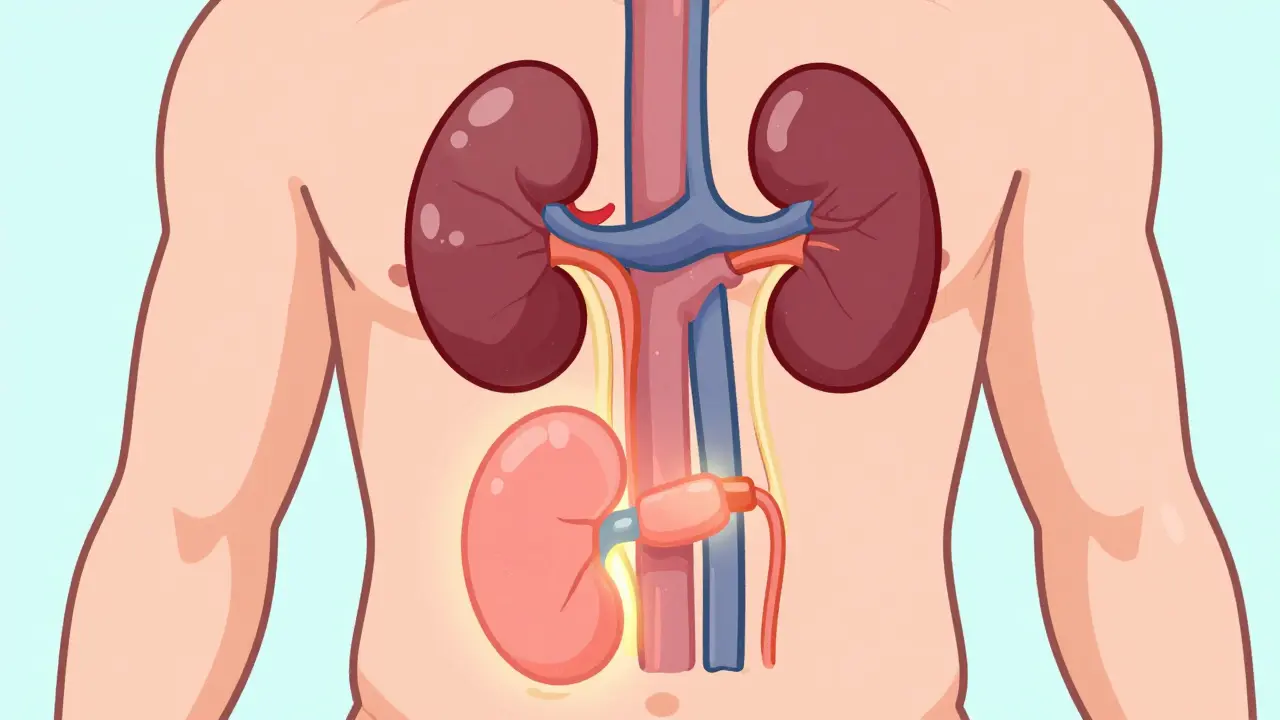Posted by
Jenny Garner
14 Comments

African-made antiretroviral generics are transforming HIV treatment access, reducing dependence on imports and building local health sovereignty. With WHO-prequalified drugs like TLD now produced in Kenya and long-acting injections rolling out, the continent is taking control of its own health future.
read morePosted by
Jenny Garner
10 Comments

A kidney transplant offers a better quality of life and longer survival than dialysis for people with end-stage kidney disease. Learn who qualifies, what the surgery involves, and how to manage life with a new kidney.
read morePosted by
Jenny Garner
14 Comments

Only specific FDA-approved medications should be flushed down the toilet - mostly powerful opioids and sedatives that can kill with one dose. Learn which ones, why, and when flushing is the safest option.
read morePosted by
Jenny Garner
13 Comments

Medication adherence means actively choosing to follow a treatment plan with your provider's support - not just obeying orders. Learn why this shift from compliance to adherence saves lives, reduces hospital visits, and improves outcomes for chronic conditions.
read morePosted by
Paul Fletcher
14 Comments

Impetigo and cellulitis are common bacterial skin infections with different causes, symptoms, and treatments. Learn how to tell them apart, which antibiotics work, and when to seek urgent care.
read morePosted by
Paul Fletcher
8 Comments

Pharmacogenomics reveals how your genes affect how your body processes drugs, reducing dangerous interactions and adverse reactions. Learn how genetic testing is changing prescribing practices and saving lives.
read morePosted by
Paul Fletcher
9 Comments

Dizziness and lightheadedness are common side effects of many medications, affecting 1 in 5 adults. Learn which drugs cause it, why it happens, and how to manage it safely without stopping treatment.
read morePosted by
Paul Fletcher
14 Comments

Ordering medication from foreign websites may save money, but it puts your life at risk. Counterfeit drugs are widespread, often deadly, and nearly impossible to detect. Learn how to avoid them and stay safe.
read morePosted by
Jenny Garner
17 Comments

Expired medications aren't always dangerous, but they're rarely reliable. Learn which pills are safe to use after expiration, which ones can harm you, and how to store and dispose of them properly.
read morePosted by
Paul Fletcher
11 Comments

Supportive care in cancer uses growth factors, antiemetics, and pain relief to manage treatment side effects, improve survival, and keep patients on track. Learn how these evidence-based tools work and why access remains unequal.
read more